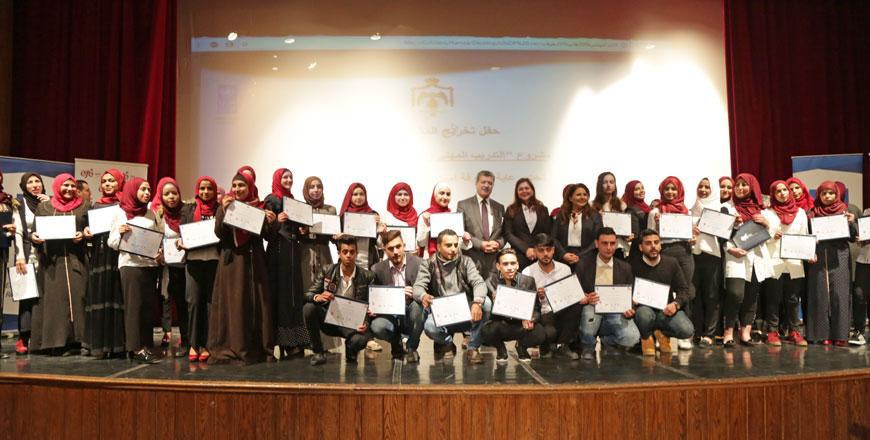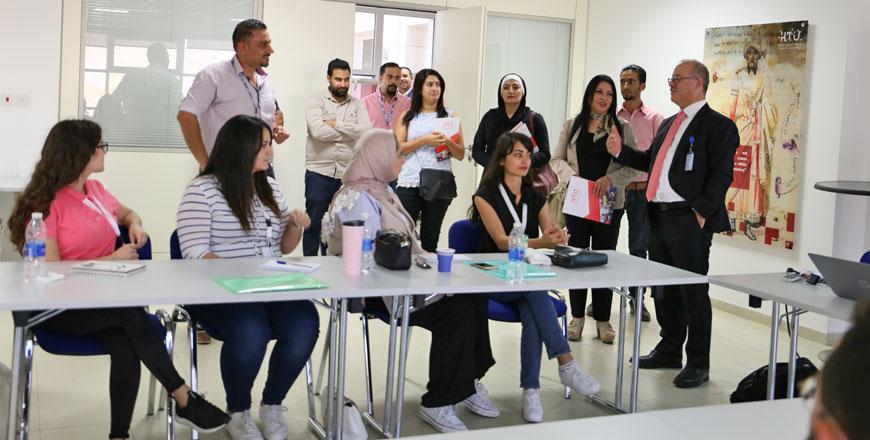You are here
‘ICT sector has booming potential if universities adapt to its demands’
By Ana V. Ibáñez Prieto - May 21,2018 - Last updated at May 21,2018
AMMAN — The information and communication technology (ICT) sector in Jordan is the third largest contributor to the national gross domestic product, with over 540 companies spread across the Kingdom, according to a research paper recently issued by labour policy expert Hamada Abu Nijmeh.
“The ICT sector is an opportunity for Jordan to increase its competitive advantage over other countries in the Arab region,” the paper stressed, highlighting that the volume of investments in the sector amounts to $199 million, while the Kingdom’s ICT exports in the past year reached $324 million.
In terms of employment, the expert said that the ICT sector directly employs approximately 18,000 workers, with a total of 1,839 new ICT graduates employed in 2016.
“Although the sector is currently suffering from a recession in the field of electronics engineering, the demand is expected to be on the rise in the near future with the ever-increasing use of electronics in the Internet of Things,” the research paper said, noting that the computer science specialty is currently one of the most demanded by employers “due to its cost-effectiveness”.
“However, we are still suffering from a huge gap between the specialties from which most students graduate and the actual labour market needs,” the researcher told The Jordan Times on Sunday, pointing out that “there is a mismatch between what is being done in the higher education sector and the skills and qualifications requested by employers in the ICT field”.
“This is actually the most relevant finding in this study,” Abu Nijmeh stressed, noting the need to “gradually eliminate specialisations with no demand while aligning the curricula of the universities with the needs of the labour market”.
The issue was addressed by Higher Education Minister Adel Tweisi in February when he noted that “the new admissions policy for the academic year of 2018-2019 will take into account the current absorptive capacity of the labour market per each specialty”, citing the decision ratified by the Higher Education Council in June 2017 to reduce the percentage of students in specialties with no labour demand.
In addition, the research paper stressed the need for the higher education field to “establish contact with organisations representing employers in order to take demands into account”, explaining that “one of the reasons why Jordanians are stuck without access to the labour market is because their qualifications do not match those currently requested by most employers”.
Related Articles
Egypt’s army chief Abdel Fattah Al Sisi said Tuesday he could not ignore demands that he run for president and will take official measures soon, state media reported.
AMMAN — “The government is in dire need of reviewing the economic and social policies that have led to the decrease in employment opportunit
AMMAN — The newly established Al Hussein Technical University (HTU) has started its second year with a “different roadmap” aimed at matching
















